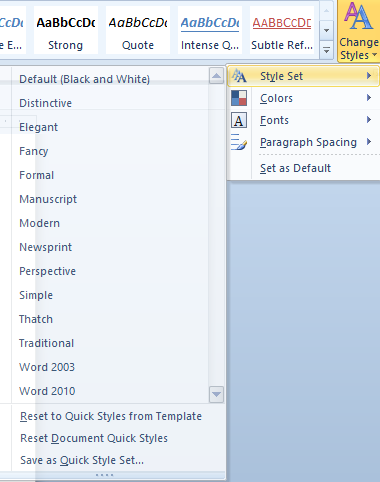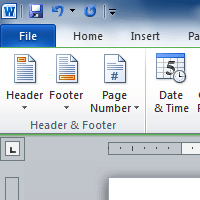

When you want to make edits, do it from the Styles window. :-) Build the additional styles you need, build the template, then use the Styles window to modify. Word now starts using that Style instead of the one you've been using. You just created a new style, automatically, and it gets imported into your document styles list. Note: If you want your new style to appear in all new Word documents, right-click it in the Styles gallery, click Modify, and then select New documents based on this template at the bottom of the dialog box. Your new style will now appear in the Styles gallery. When changing things from menu icons, numbering will start going crazy. In the Create New Style from Formatting dialog box, give your style a name and click OK. When you have styles already built, as with a template, use the Style window styles, only. That is a huge NO-NO when with a template. When you use auto-numbering from a Heading style, most people will start using the Numbering icon in the main menu. I can think of one, and that's if you plan to use the same document style for every document. If anyone can tell me real advantages to using "Style based on", I would love to hear them. I recommend that you create every style as a standalone style, and not use "Based on". It might be a little more work to build a template with the Styles window, but not really. When changing any attribute, it leaves more work. Documents normally have different (Heading) font sizes, for example. It can be any attribute of the Based on style.font, color, font size, etc. When you do that, anything changed in the first style gets changed in all of the others it's based on. Sorry Chip! Now I understand your question. After the copy, click Close, the style importing is finished. If a line of text is formatted using the Heading 2 style then it is. For instance, if a line of text is formatted using the Heading 1 style then it is a Major heading. There will be a description under the left box when you select a style in the box. Outlining in MS Word 2010 Microsoft Word 2010 provides users with an Outline View and Outlining toolbar, which allows us to create outlines. You also can delete or rename the style.ģ. (Press Ctrl+click or Shift + click to select multiple styles)Ģ.

And these two files can copy the style from each other.

Where the arrow point to will be the place import style. After opening the file you want to import style from, you can select the style of the file in the right box and click Copy, it will copy the style to the left box. You can search the file you want according to the format by clicking A, and also can enter the name of the file in File name box to quickly search it. Click Open File, and select the file you want to import style from, then click Open. There will be another popup dialog, click Close File in the right, and the check box will be replace with Open File. Click Document Template under Develop Tab, there will be a popup dialog, and click Organizer. Step 1: Open the document you want to import style to in Word then click File > Options> Custom Ribbon to add the Developer under the Main Tabs to ribbon.


 0 kommentar(er)
0 kommentar(er)
